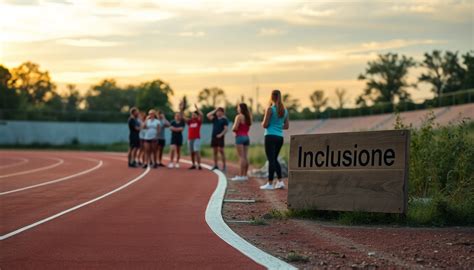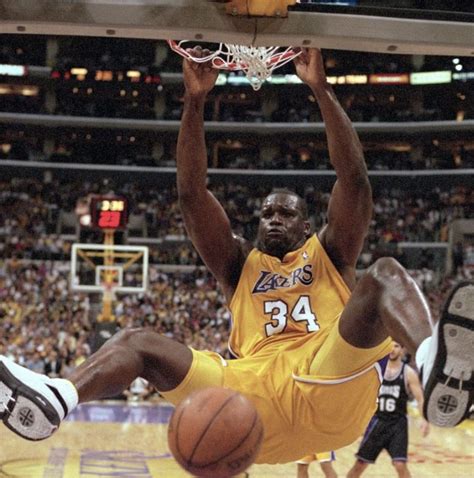
Simone Biles has publicly apologized to Riley Gaines amidst ongoing debates surrounding transgender athletes’ participation in women’s sports, emphasizing the need for both competitive fairness and inclusivity. The Olympic gymnast expressed her sentiments while advocating for solutions that respect the rights and opportunities of all athletes.
Simone Biles, one of the most decorated gymnasts in history, has stepped into the contentious debate surrounding transgender athletes in women’s sports. In a recent statement, Biles directly apologized to Riley Gaines, a former University of Kentucky swimmer who has become a prominent voice advocating for the exclusion of transgender women from women’s sports. Biles’ statement underscores the complexities of balancing inclusivity and competitive equity, highlighting the challenges sports organizations face in creating fair and respectful environments for all athletes.
Biles’ Position: A Call for Balance
Biles’ involvement in this debate stems from a deep concern for maintaining the integrity of women’s sports while also supporting the inclusion of transgender individuals. According to a statement derived from her social media presence, Biles recognizes the emotional and practical challenges involved, stating, “I want to say I am very sorry [for] how Riley and others are feeling. I truly do. It pains me to see what is going on in the sport I love.” This acknowledgment reflects the difficult position many athletes and sports administrators find themselves in, navigating the demands of fairness and inclusivity.
The heart of Biles’ stance is a call for a balanced approach. While she champions inclusivity, she also emphasizes the importance of competitive equity. This perspective aligns with many who argue that biological differences can create unfair advantages, particularly in sports where physical strength and endurance are critical. Biles has also supported the idea of creating separate categories or adjustments to existing rules to accommodate transgender athletes while ensuring fair competition in women’s sports. “I know I can’t fully understand what it’s like to be in your position, but I want to be part of the conversation,” she stated, reflecting a desire to contribute to constructive dialogue and potential solutions.
Riley Gaines’ Advocacy and Perspective
Riley Gaines gained national attention for her vocal opposition to transgender women competing in women’s sports, particularly after she tied with transgender swimmer Lia Thomas at the NCAA championships. Gaines has since become a leading advocate for organizations and policies that seek to restrict transgender women’s participation, arguing that their inclusion undermines the opportunities and achievements of cisgender women.
Gaines’ perspective is rooted in the belief that biological males possess inherent physical advantages that persist even after hormone therapy. She often cites studies and anecdotal evidence to support her claims that transgender women are stronger, faster, and have greater lung capacity, making it unfair for cisgender women to compete against them. Gaines’ advocacy includes testifying before legislative bodies, participating in public debates, and using social media to raise awareness about her concerns.
Her reaction to Biles’ apology was mixed. While Gaines appreciated Biles’ acknowledgment of her feelings, she also reiterated her stance that biological differences necessitate separate categories. She emphasized the importance of protecting women’s sports and argued that inclusivity should not come at the expense of competitive fairness. This perspective is emblematic of a broader debate within the sports community, where differing views on science, fairness, and social justice clash.
The Transgender Athlete Debate: A Broader Context
The debate surrounding transgender athletes’ participation in sports is multifaceted, involving scientific, ethical, legal, and social considerations. The central question revolves around how to balance the rights and inclusion of transgender individuals with the desire to maintain fair competition in sports.
-
Scientific Considerations: One of the primary areas of contention is the extent to which hormone therapy can mitigate the biological advantages that transgender women may have due to their male physiology at birth. Studies on this topic have yielded mixed results, with some suggesting that hormone therapy reduces muscle mass and strength, while others argue that significant advantages persist. The lack of conclusive scientific evidence makes it difficult to establish universal guidelines that satisfy all stakeholders.
-
Ethical Considerations: Ethical arguments in this debate often revolve around the principles of fairness, equality, and respect. Proponents of transgender inclusion argue that excluding transgender athletes constitutes discrimination and violates their right to participate in sports. They emphasize the importance of creating inclusive environments where transgender individuals feel welcomed and supported. Conversely, those who advocate for restrictions argue that fairness requires acknowledging biological differences and protecting the opportunities of cisgender women.
-
Legal Considerations: The legal landscape surrounding transgender athletes is evolving, with different jurisdictions adopting varying approaches. Some states have passed laws restricting transgender women’s participation in sports, while others have enacted protections for transgender individuals. These legal battles often involve challenges to anti-discrimination laws and constitutional rights.
-
Social Considerations: The social implications of this debate extend beyond the realm of sports, touching on broader issues of gender identity, social acceptance, and cultural norms. The visibility of transgender athletes has sparked conversations about gender roles, societal expectations, and the importance of creating inclusive spaces for all individuals.
Potential Solutions and Paths Forward
Given the complexity of the transgender athlete debate, finding solutions that satisfy all parties is challenging. However, several potential paths forward have been proposed:
-
Separate Categories: One of the most frequently discussed solutions is the creation of separate categories for transgender athletes. This approach would allow transgender individuals to compete against one another without impacting the competitive landscape of women’s sports. However, challenges remain in terms of participation rates, resource allocation, and the potential for stigmatization.
-
Hormone Level Thresholds: Another approach involves establishing specific hormone level thresholds that transgender women must meet to be eligible to compete in women’s sports. This method aims to mitigate the potential biological advantages associated with higher testosterone levels. However, determining appropriate thresholds and ensuring consistent monitoring can be complex.
-
Individualized Assessments: Some organizations have adopted policies that involve individualized assessments of transgender athletes, taking into account factors such as hormone levels, body composition, and competitive history. This approach allows for a more nuanced evaluation of each athlete’s eligibility. However, it can also be resource-intensive and may be subject to bias.
-
Modified Rules: Adjusting rules to account for potential biological differences is another possible solution. This could involve handicapping systems or modified scoring to level the playing field. However, the feasibility and effectiveness of such modifications would vary depending on the sport.
-
Promoting Education and Understanding: Ultimately, fostering greater understanding and empathy is crucial for navigating this complex issue. Educating athletes, coaches, and administrators about transgender issues can help create more inclusive and respectful environments. Encouraging open dialogue and constructive conversations can also facilitate the development of solutions that address the concerns of all stakeholders.
The Role of Sports Organizations
Sports organizations at all levels play a critical role in shaping policies and practices related to transgender athlete participation. These organizations must carefully consider the scientific, ethical, and legal factors involved, as well as the needs and perspectives of their members.
Some organizations have adopted inclusive policies that allow transgender athletes to participate based on their gender identity, while others have implemented more restrictive policies. The NCAA, for example, has adopted a sport-by-sport approach, deferring to the policies of each sport’s national governing body. The International Olympic Committee (IOC) has also issued guidelines on transgender athlete participation, but these guidelines have been subject to criticism for being too vague and inconsistent.
Ultimately, sports organizations must strive to create policies that are fair, equitable, and respectful of all athletes. This requires ongoing dialogue, consultation with experts, and a commitment to adapting policies as new information becomes available.
Public and Media Reactions
The transgender athlete debate has garnered significant attention from the public and the media. Media coverage has often focused on high-profile cases, such as Lia Thomas, and has contributed to heightened awareness and polarization.
Public opinion on this issue is divided, with differing views often reflecting broader political and social beliefs. Some individuals and groups strongly support transgender inclusion, while others advocate for restrictions based on concerns about fairness and safety. These divergent views have fueled passionate debates and protests, further complicating the search for common ground.
The role of the media in shaping public perception is significant. Balanced and nuanced reporting can help to inform the public about the complexities of this issue and promote greater understanding. However, sensationalized or biased coverage can exacerbate tensions and hinder progress.
The Future of Transgender Athletes in Sports
The debate surrounding transgender athletes’ participation in sports is likely to continue for the foreseeable future. As scientific knowledge evolves and societal attitudes shift, policies and practices will need to adapt accordingly.
Moving forward, it is essential to prioritize dialogue, collaboration, and a commitment to finding solutions that respect the rights and needs of all athletes. This requires engaging with experts, listening to diverse perspectives, and fostering a culture of inclusivity and understanding.
Ultimately, the goal should be to create sports environments where all individuals feel welcomed, supported, and empowered to participate and compete to the best of their abilities.
Frequently Asked Questions (FAQ)
-
Why did Simone Biles apologize to Riley Gaines?
Simone Biles apologized to Riley Gaines to acknowledge the feelings and concerns Gaines has expressed regarding the participation of transgender athletes in women’s sports. Biles recognized the emotional impact of the debate and sought to express empathy, even while holding different views on the issue.
-
What is Riley Gaines’ stance on transgender athletes in women’s sports?
Riley Gaines is a vocal advocate for restricting transgender women’s participation in women’s sports. She believes that biological males possess inherent physical advantages that persist even after hormone therapy, making it unfair for cisgender women to compete against them.
-
What potential solutions have been proposed to address the transgender athlete debate?
Several solutions have been proposed, including creating separate categories for transgender athletes, establishing hormone level thresholds, conducting individualized assessments, modifying rules to account for biological differences, and promoting education and understanding.
-
What factors contribute to the complexity of the transgender athlete debate?
The debate is complex due to scientific uncertainties regarding the impact of hormone therapy, ethical considerations related to fairness and inclusion, legal challenges to anti-discrimination laws, and social implications related to gender identity and societal norms.
-
What is the role of sports organizations in shaping policies related to transgender athlete participation?
Sports organizations play a critical role in shaping policies and practices related to transgender athlete participation. They must carefully consider the scientific, ethical, and legal factors involved, as well as the needs and perspectives of their members, to create policies that are fair, equitable, and respectful of all athletes.
Expanded Context and Analysis
The controversy surrounding transgender athletes is more than just a sports issue; it’s a cultural flashpoint reflecting deeper societal anxieties about gender, identity, and fairness. Understanding this context is crucial for appreciating the nuances of the debate and the challenges in finding equitable solutions.
The Evolving Understanding of Gender Identity
The increased visibility of transgender individuals in recent years has prompted a broader societal discussion about gender identity. Traditionally, gender was viewed as a binary construct, with individuals assigned male or female at birth based on their biological sex. However, contemporary understandings recognize that gender is a more complex and fluid concept, encompassing a range of identities and expressions.
Transgender individuals identify with a gender that differs from the sex they were assigned at birth. This can involve a range of experiences, from feeling a persistent disconnect between their assigned sex and their gender identity to actively transitioning through hormone therapy or surgery.
The recognition of transgender identities has significant implications for various aspects of society, including legal rights, healthcare access, and social inclusion. In the context of sports, it raises questions about how to create environments that are welcoming and supportive of transgender athletes while also maintaining fair competition.
The Intersection of Science and Ideology
The debate surrounding transgender athletes often involves a clash between scientific evidence and ideological beliefs. Proponents of restrictions on transgender women’s participation often cite studies suggesting that biological males possess inherent physical advantages that persist even after hormone therapy. They argue that these advantages create an unfair playing field for cisgender women.
Conversely, proponents of transgender inclusion often emphasize the importance of considering the totality of an individual’s circumstances, including their hormone levels, body composition, and competitive history. They argue that hormone therapy can significantly reduce muscle mass and strength, and that individualized assessments are necessary to determine eligibility.
However, the interpretation of scientific evidence is often influenced by underlying ideological beliefs. Those who hold more traditional views on gender may be more likely to emphasize biological differences, while those who hold more progressive views may be more likely to focus on the potential for hormone therapy to mitigate these differences.
This interplay between science and ideology makes it difficult to reach consensus on the appropriate policies for transgender athlete participation. Different individuals and groups may interpret the same scientific evidence in different ways, leading to divergent conclusions.
The Legal and Policy Landscape
The legal and policy landscape surrounding transgender athletes is evolving rapidly. In recent years, numerous states have passed laws restricting transgender women’s participation in sports, arguing that these restrictions are necessary to protect the integrity of women’s sports. These laws have faced legal challenges, with opponents arguing that they violate anti-discrimination laws and constitutional rights.
At the federal level, the Biden administration has taken steps to protect the rights of transgender individuals, including issuing guidance clarifying that Title IX, the federal law prohibiting sex discrimination in education, protects transgender students. However, the legal status of transgender athletes remains uncertain, and the issue is likely to be litigated in courts for years to come.
Sports organizations at all levels are also grappling with the issue of transgender athlete participation. Some organizations have adopted inclusive policies that allow transgender athletes to participate based on their gender identity, while others have implemented more restrictive policies. The NCAA, for example, has adopted a sport-by-sport approach, deferring to the policies of each sport’s national governing body.
The lack of a consistent legal and policy framework creates confusion and uncertainty for athletes, coaches, and administrators. It also raises questions about the fairness and consistency of enforcement.
The Importance of Empathy and Understanding
Ultimately, navigating the complexities of the transgender athlete debate requires empathy, understanding, and a willingness to engage in constructive dialogue. It is essential to recognize that this issue involves real people with real feelings and experiences.
Transgender athletes, like all athletes, deserve the opportunity to participate in sports in a safe, welcoming, and supportive environment. They should not be subjected to discrimination or prejudice based on their gender identity.
At the same time, it is important to acknowledge the concerns of cisgender women who fear that their opportunities may be diminished by the inclusion of transgender athletes. Their voices should be heard and their concerns addressed in a respectful and thoughtful manner.
Finding solutions that balance the rights and needs of all athletes requires a commitment to understanding diverse perspectives and engaging in open and honest conversations. It also requires a willingness to challenge assumptions and biases and to consider new approaches.
The transgender athlete debate is not an easy one, but it is one that must be addressed with compassion, empathy, and a commitment to creating a more inclusive and equitable world for all. This includes robust conversations, continuous learning, and embracing the evolving understanding of gender and identity. Only through these sustained efforts can the sports community create environments where every athlete feels valued and respected. The path forward necessitates acknowledging the complexities inherent in balancing inclusivity and competitive fairness, ultimately striving to create spaces where all participants can thrive.









